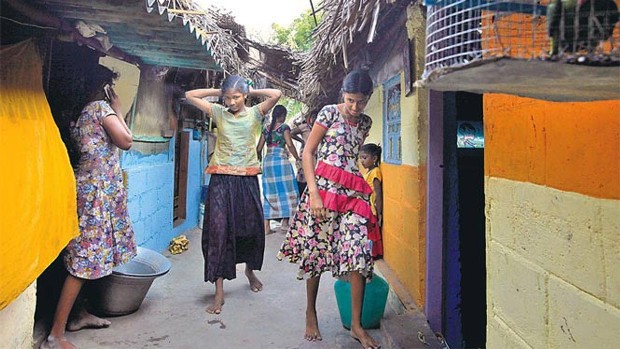By P. K. Balachandran
COLOMBO – The Tamil National Alliance (TNA) has requested India to facilitate the return of an estimated 150, 000 Sri Lankan Tamil refugees now in India, most of who live in government-run camps in Tamil Nadu.
A TNA delegation led by R.Sampanthan had made the request when it met the visiting Indian Foreign Minister S. Jaishankar in Colombo on Thursday (7).
It was the first time the TNA (or any other Sri Lankan Tamil party for that matter) had made such a request since the early 1980s. Explaining the reason for the sudden change, a top TNA source said there was now a fear that the dwindling population of the Tamils in the Northern Province will lead to the dwindling of seats for the Tamils in the Sri Lankan Parliament. The worst affected will be the Northern Province, which is the only Tamil-majority province in Sri Lanka.
“There was a time when we had ten parliamentary seats in the Northern Province. Due to a steady migration to other countries because of the war, the number of seats now stands at seven. When there is a fresh enumeration in August this year, the number of seats could come down to six,” the source said.
“But the return of 150,000 refugees from India will help us keep or increase the number of seats,” he added.
The source revealed that the Sri Lankan Tamil leaders had suggested to the Tamil Diaspora in the Western countries to return, strengthen the population and develop the Tamil province. But they said that it would be more sensible and realistic to persuade the refugees in Tamil Nadu to return as the bulk of these are poor and living in camps.
However, the Sri Lankan Tamil refugees in Tamil Nadu have no inclination to return to Sri Lanka, where they believe, they are no facilities to enable them to eke out a living, especially in the war-devastated Northern and Eastern Provinces. They also fear harassment by the Sri Lankan security establishment.
Encouraging them to think negatively are Tamil politicians both in Sri Lanka and Tamil Nadu. These have been wanting to portray conditions in Sri Lanka in dark colojrs to further their case for maximum autonomy (or independence till 2009). In fact, in Tamil Nadu, the Dravida Munnetra Kazhagam (DMK) has been asking New Delhi to grant Indian citizenship to the Lankan Tamil refugees who have been living in Tamil Nadu since the early 1980s when the war started in Sri Lanka. The Central government, however, has turned a deaf ear to these pleas.
It should also be pointed out that the refugees, including the thousands of families living in government-run camps, are leading reasonably comfortable lives. They get free rations, pocket money, free electricity, water and education. Most take jobs outside the camps and bring in money. Those outside the camps are living normal lives though they are non-citizens. Many have married Indians.
Sinhalese politicians are well aware of this. As former Minister Lakshman Kiriella said: “It is pointless asking them to come back. They are well off there, getting a lot of things free.”
However, OFERR, the organization run by S. C. Chandrahasan, is determined to bring the refugees back. “We have to reclaim our land,” Chandrahasan says pointing out to the depletion of the Tamil population in the North. As many as 1.5 million people have left their homeland for refuge or for better opportunities in advanced countries.
Chandrahasan’s organization, has been liaising with the Sri Lankan government to provide voluntary returnees assistance in settling down in Sri Lanka. According to the organization, the Lankan officials and departments have been cooperative. The Sri Lankan Deputy High Commission in Chennai registers births and marriages of refugees and gives them citizenship papers. Yet, takers have been few and far between.
– P K. Balachandran is a senior Colombo-based journalist who in the past two decades, has reported for The Hindustan Times, The New Indian Express and the Economist


